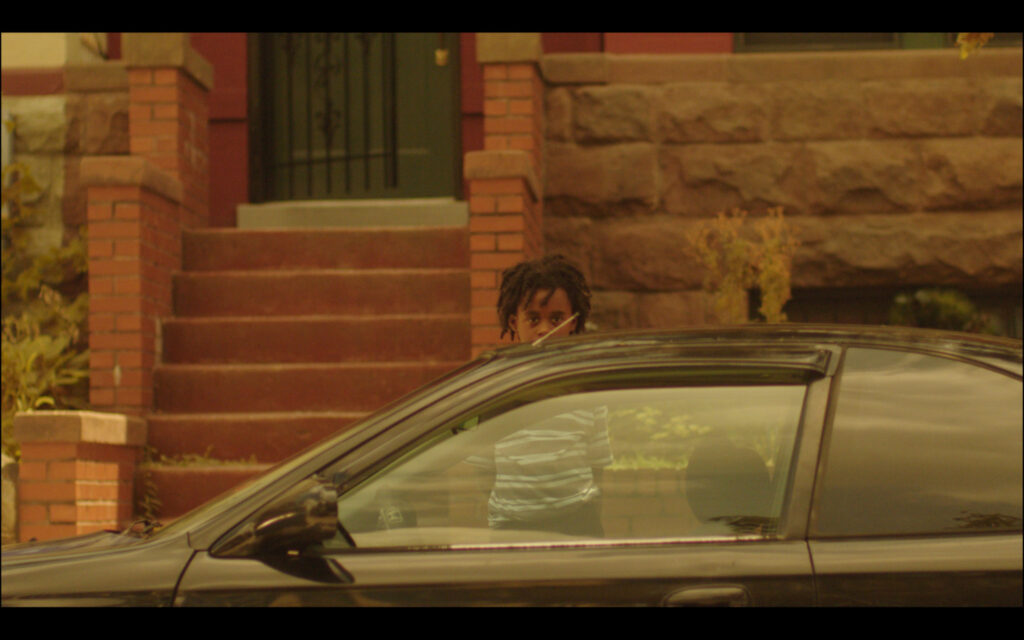Residue follows the story of a filmmaker, Jay (Obinna Nwachukwu), returning to his old neighborhood, Eckington, in Northeast D.C., which has been renamed NoMa. He’s coming back after years away studying film in Los Angeles to make a film about his childhood, only to see that his neighborhood has radically changed due to gentrification and many of his old friends have been pushed out or locked up.Jay wants to rewrite this story. He tells his childhood friend Delonte (Dennis Lindsey) that the new white people in D.C. will just walk over them and they’ll be forgotten if he doesn’t make his film. Jay visits family and old friends and reminisces with them about the times before gentrification reached Q Street. He wants the story to be the life before all this.
This film is authentic. What impressed me the most was the D.C. slang used by these actors and actresses — phrases and gestures I’ve grown up with and used myself, as a native Washingtonian. I could relate like being there. Writer/Director Merawi Gerima has said most of the cast and crew were from Northeast, and the film itself is based on his own experience growing up here and going to film school in California, and the difference he noticed when he returned after only one year away at school. Their experience shines through.
On the other hand, this film would look more authentic if there were more camera shots of the city. It was nice to have the film start with Go-Go and New Bounce music on U Street, but that was about the only area of the city that I recognized. There were no shots of the U.S. Capitol Building and no shots of Union Station, which is right at the area now branded as NoMa.
If you have never experienced gentrification, Gerima gives us a good look at how it can cause conflicts, but not at how to resolve them. Although there’s no easy resolution to these conflicts, the film would have been more educational if it attempted to show the audience how to make a change. Near the end, Jay takes his frustration out on two white men who are out walking his neighborhood. He assaults them and then runs away. This only shows conflict.
I am experiencing gentrification myself, but not to the extent of Gerima’s film. What I am noticing is more white people living here and visiting the new restaurants and stores in the neighborhood.
Also more law enforcement. Gerima included a sequence in Residue juxtaposing the audio of a conversation between two white people eating brunch and talking about the transformation of DC while showing the visuals of multiple Black people being forcibly arrested by the police.
I have not personally gotten the “turn your music down or I’ll call the cops” threat that Jay got in the film. But I have heard similar stories from my neighbors. Residue is a good film. If you are new to our city, I recommend this film for you because it gives a real good look at the changes in our city, which was the most intensely gentrified city in the country from 2000 – 2012 and dropped to the thirteenth-most-intense ranking from 2013 – 2017.
Residue is now streaming on Netflix. Screenings may also be requested through the film community Array at www.arraynow.com/residue.








